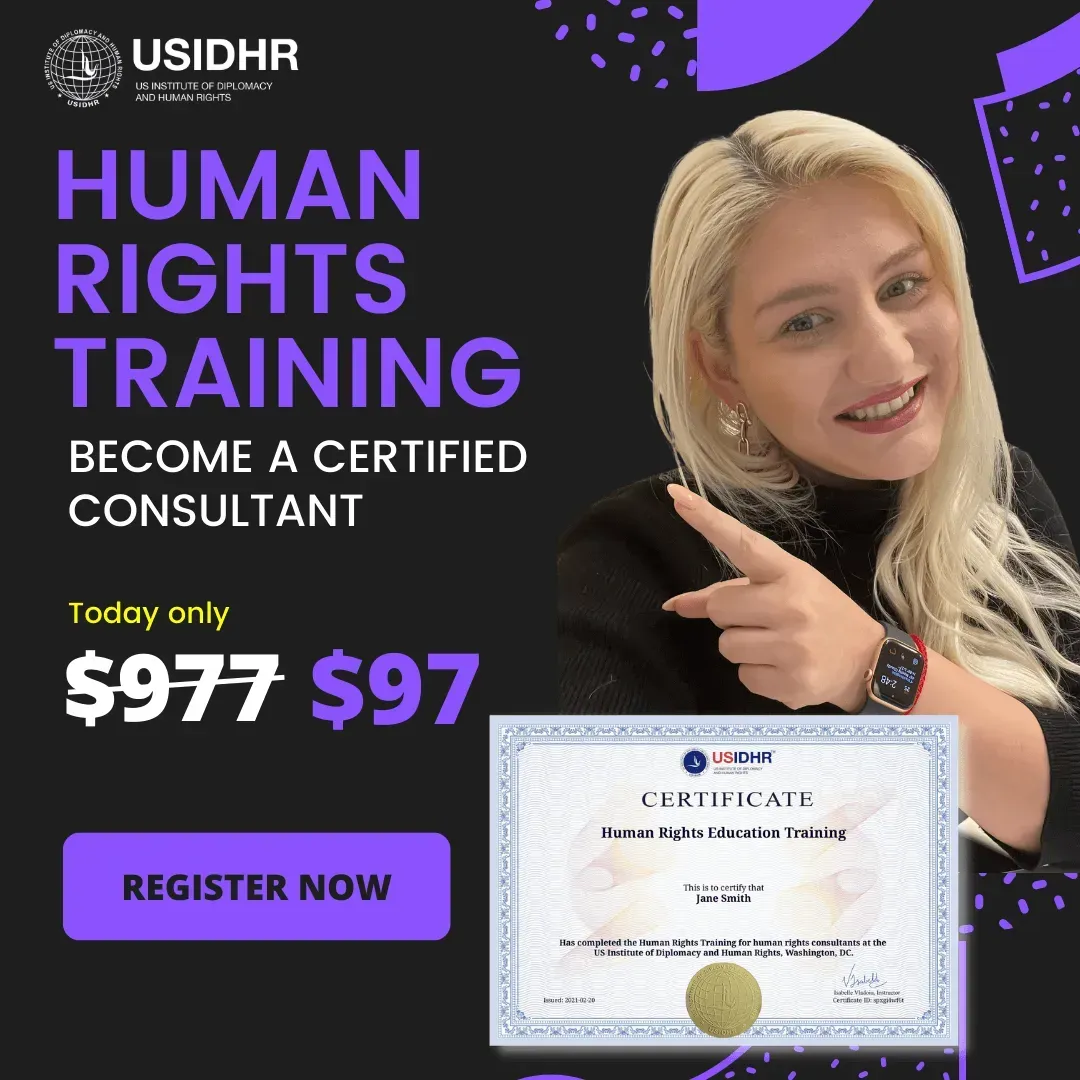Human rights movements are extremely popular today, and many are somewhat familiar with these two words; whether you’ve heard them at home, with your friends, or watched them trend as hashtags on Twitter. When sharing hashtags seems unfulfilling, some seek to do more to promote equality and eradicate unfairness; but how do you start a career in Human Rights?
While a career in Human Rights may bring a sense of accomplishment, getting there can be very challenging. Different from most other career paths, when it comes to working in Human Rights, there is not one specific way to do it.
The Traditional Route
Traditionally, wanting to build a career in Human Rights involved a very long educational history. This included getting further qualifications such as undergraduate and postgraduate degrees, language courses, and several unpaid internships. Even though the traditional route is still widely appreciated by many Human Rights organizations, today the ‘traditional route’ is not the only available one.
The New Human Rights Worker
The ‘traditional route’ although still widely appreciated in today’s ever-changing society has quickly become outdated, and the Human Rights sector while still challenging has seen many of its new professionals become human rights workers in various new ways. There might be no specific ‘guideline’ to follow, but there are a few important things you should aim to do:
Building your professional authority
Building your professional authority involves developing your professional power to create wider opportunities. How do you do this? Well, fortunately enough in this day and age, learning or professional development is not something you get exclusively through educational institutions. Many organizations such as the US Institute of Diplomacy and Human Rights offer various professional certificates that not only will develop your professional understanding in the Human Rights field but also build your professional authority. In today’s society professional authority does not limit itself to the value of a name on a title, it is about achieving new skills and adding professional value to yourself.
Putting yourself out there
Putting yourself out there can play a significant role not only professionally but also personally. Attending human rights conferences, workshops, or seminars is a great way to build your professional authority. There are plenty of human rights-oriented networking events that are easily accessible and free, these include conferences organized by the U.N. or many of the events advertised on Eventbrite. Attending these opportunities can help develop new professional relationships, gain knowledge and become more successful in your career.
Find ‘like-minded’ people to share your journey with
When looking to build a career especially in Human rights, finding like-minded people that will support and that you can grow with is extremely important; and if you are lucky enough to share your journey together even better. Collaborating with like-minded people can help create a sense of community, and this can act as a motivator especially when sharing a common goal. Joining Facebook groups like the Diplomacy and Human Rights group can be one easy way of finding like-minded people to hang out.
Finding an NGO that represents you.
Alternatively, depending on the Human Rights mission you most feel passionate about, finding a Non-profit organisation (NGO) with objectives that appeal to you can be a great starting point in a career in Human Rights. The internet is an unending source of information; so with a bit of website browsing, and some research, the basic information of any organization sparking interest should be quite easy to access i.e. missions, programs, and partners. Remember information is important. The more you can find, the better you know, and the better you are able to represent.
Be passionate and Be you.
Last but not least; do it for the right reasons. Even though Human Rights is something that everyone should have some knowledge about, working in Human Rights is an extremely challenging and demanding occupation, not just a trend. Historically, Human Rights workers have been driven, relentless and passionate people irrespective of the possibility of failure or even danger i.e. Nelson Mandela, Malala Yousafzai, and Liu Xiaobo. The common denominator for a successful career in Human Rights is a genuine eagerness to fight for fundamental liberties. Whether as an activist, an advocate, or a consultant, dedication and passion always bring good results.
Professional growth in Human Rights
Working in Human rights may be challenging but it allows for great professional growth, and advocating for dignity and equality can be rewarding in many different ways. However, if you are worried about finance you will be pleased to discover that Human Rights workers can earn from an annual salary of 28 thousand dollars a year as human rights policy officers, to 159 thousand dollars as human rights consultants. It’s up to you to climb the ladder!
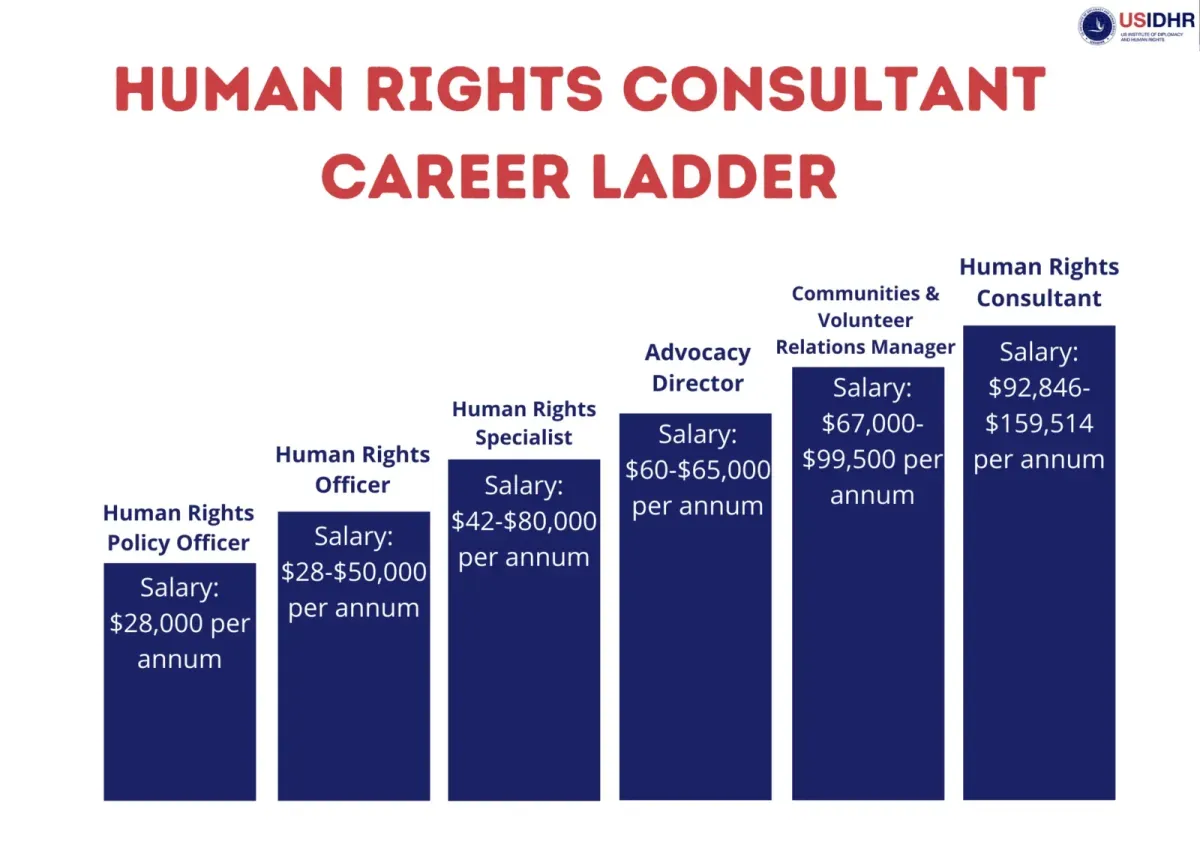
If you are still set on working in Human Rights and you are looking to build your professional authority, the US Institute of Diplomacy and Human Rights (USIDHR) is offering the perfect training tools to build the necessary foundations. Our Human Rights Consultants course is an educational program providing certification and most importantly in-depth knowledge of Human Rights. So why not click here to access the registration page and get yourself started!
It is incredible how Human Rights are something people not only are willing to talk about but seriously engage in. Differently from televised stereotypes, a career in Human Rights involves many different pathways leading to a variety of occupations. Again, there is not a specific way to do it, we can offer you the resources but the journey is entirely yours.
Reference list:

Giusy Lawani
Research Assistant
Top Posts
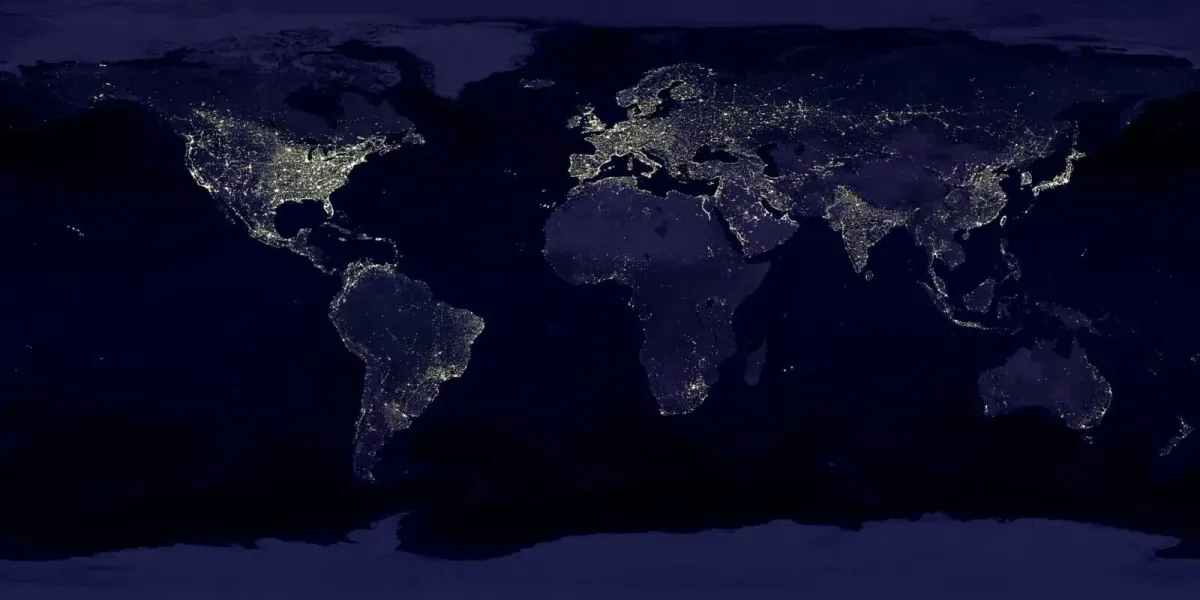
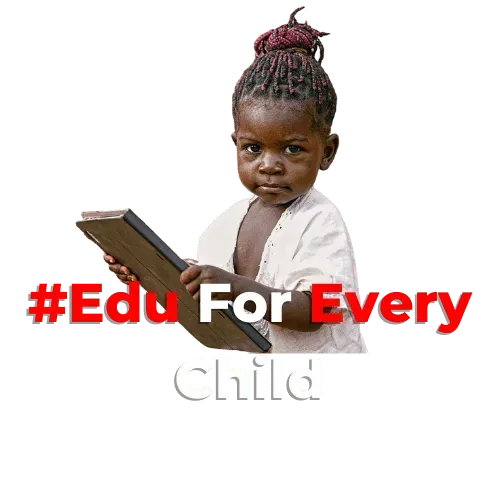
Donate to help provide educational resources for underprivileged children.
Who is USIDHR?
US Institute of Diplomacy and Human Rights (USIDHR) is a 501(c)3 nonprofit organization located in Washington, DC. Its main purpose is to advance education for all. Through its EduforEveryChild program, USIDHR helps kids at-risk of poverty go to school by supporting their education for an entire year. So far, they have helped hundreds of kids go to school by awarding them the Edu-box containing school supplies, materials and necessaries to go to school. USIDHR also provides online courses and training on human rights, human trafficking, diplomatic protocol and etiquette, and business consulting. Other programs include Let Her Lead, an initiative aimed at empowering young women through education and training, and Religious Pluralism for promoting religious freedom for all.
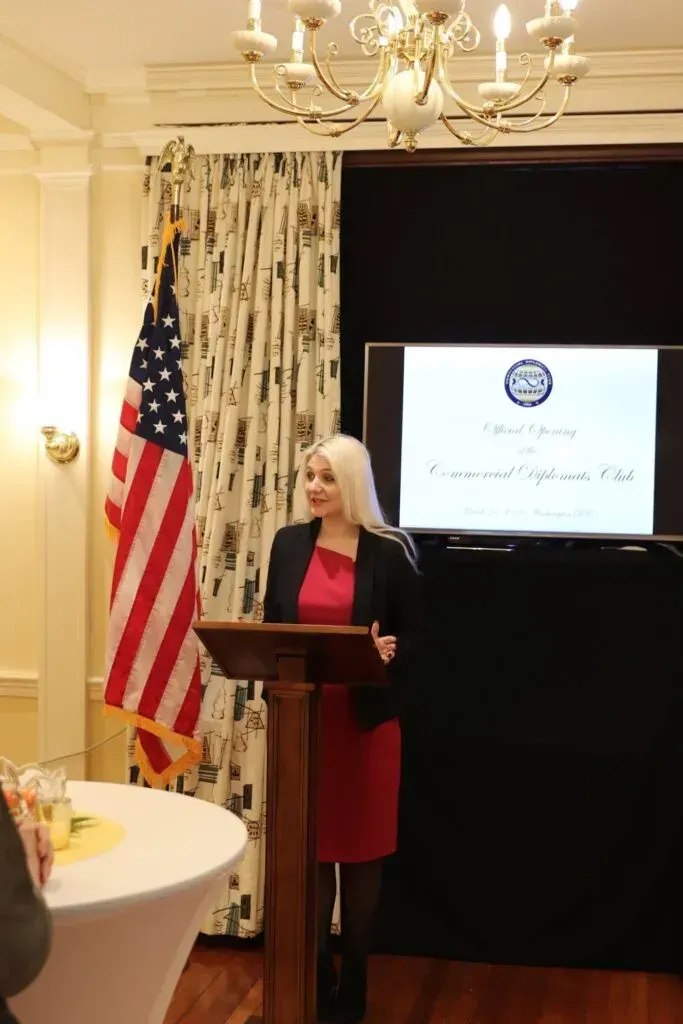

Other Blogs You May Like:
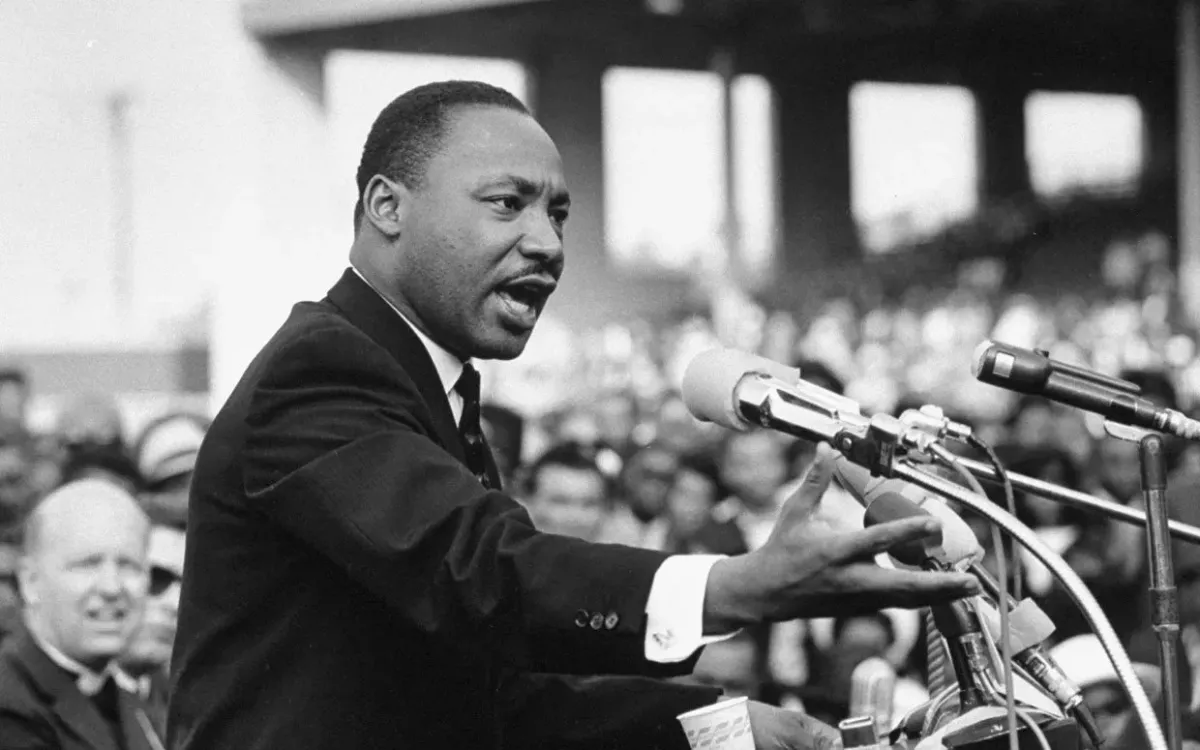
How did Martin Luther King Jr. inspire others?
How did Martin Luther King Jr. inspire others? 7 min read Martin Luther King Jr. is perhaps one of the most prolific figures of our
January 28, 2022 - No Comments

The Significance of the International Day of Tolerance
The word “tolerance” may seem like it became cliché or overused. What is somewhat unbeknownst of tolerance is the power it truly holds and the
January 25, 2022 - No Comments

Roma and Sinti Statelessness in Germany
What is Statelessness? Article 15 of the UN Declaration of Human Rights states that every person has the right to a nationality, that no one shall be arbitrarily deprived of a
November 1, 2021- No Comments
Follow USIDHR:
Follow USIDHR:
© 2023 US Institute of Diplomacy and Human Rights is a 501(c)(3) organization. Gifts are deductible to the full extent allowable under IRS regulations.

